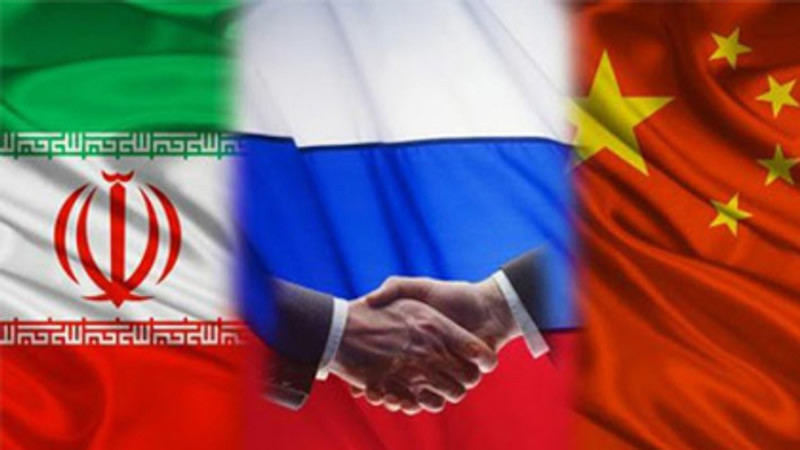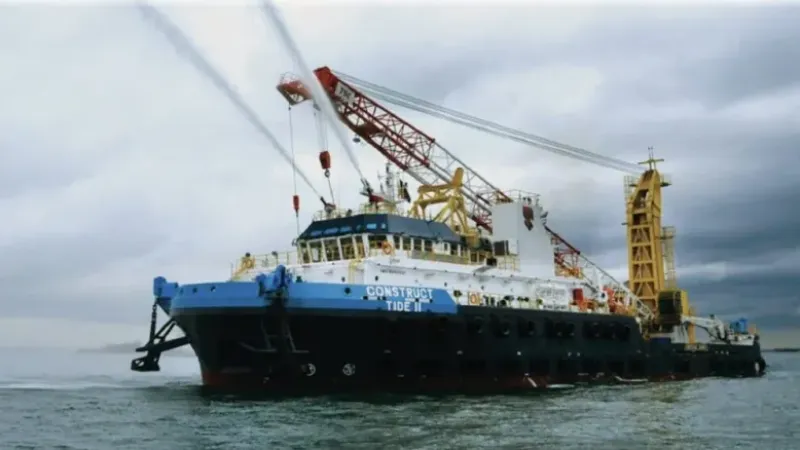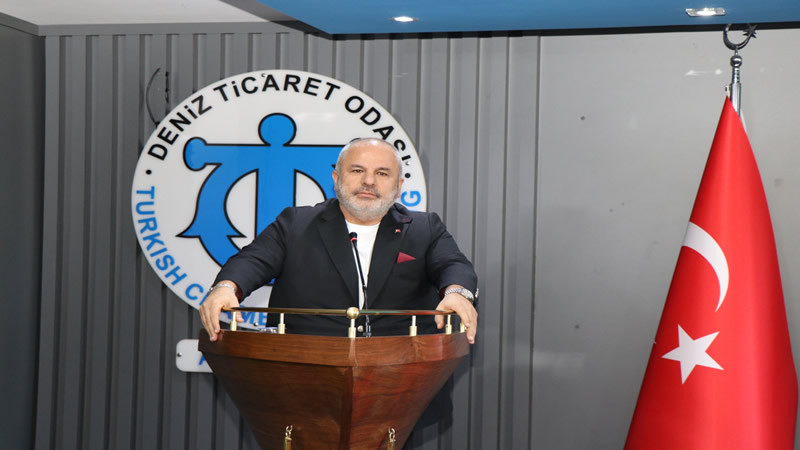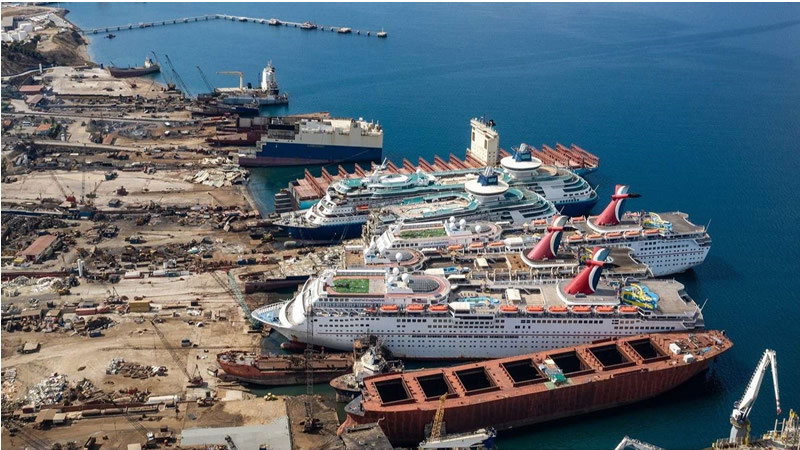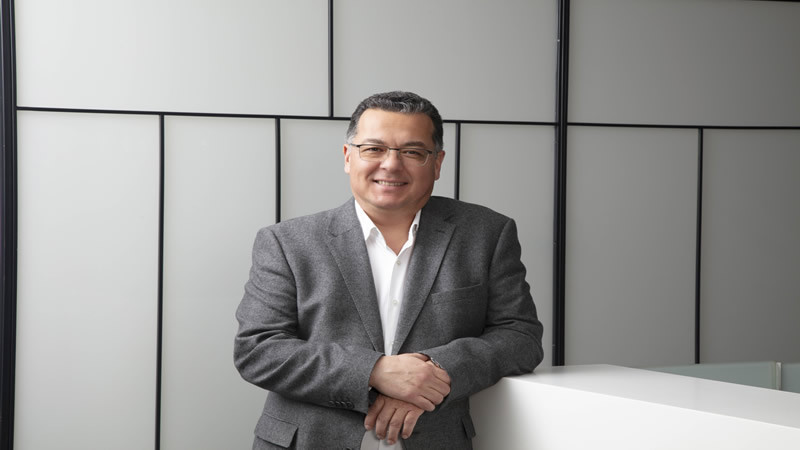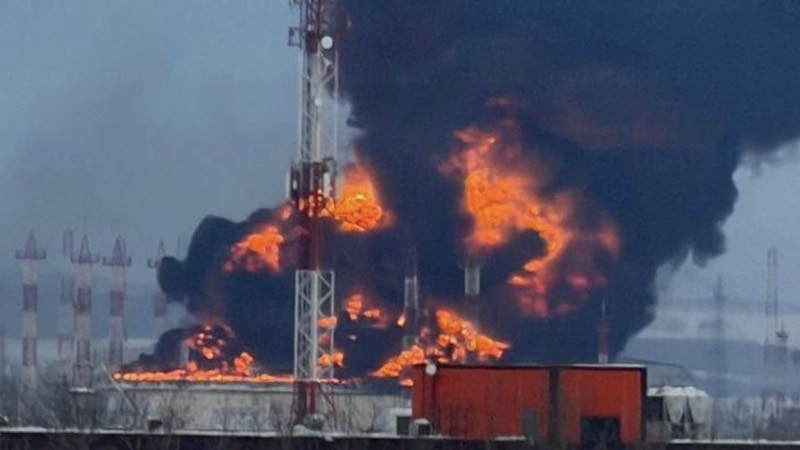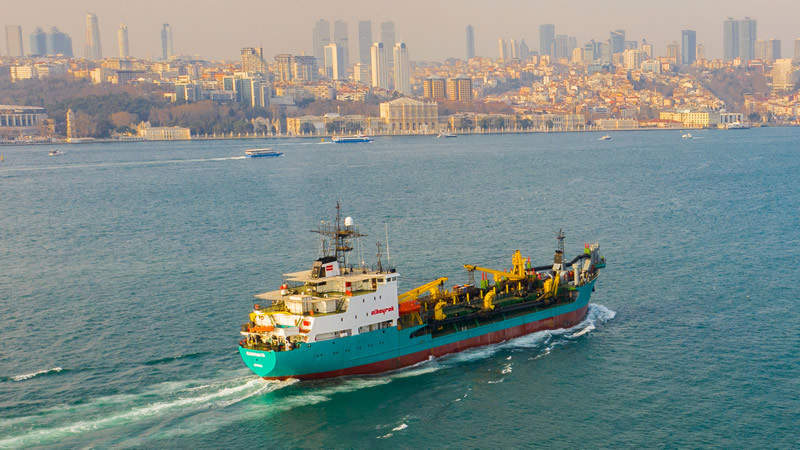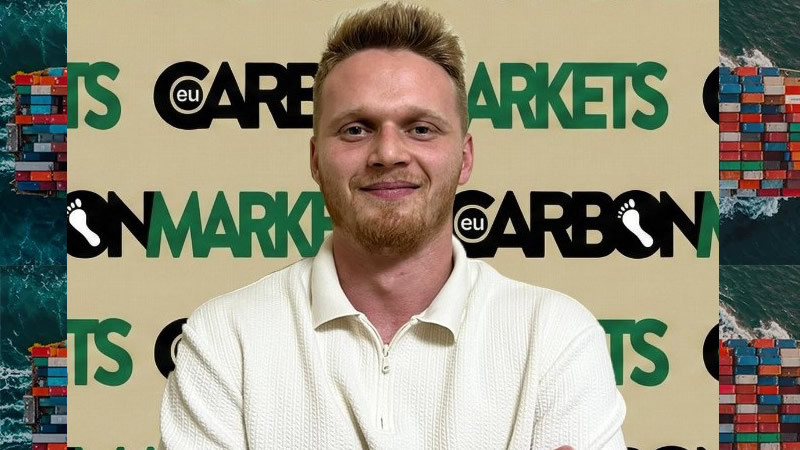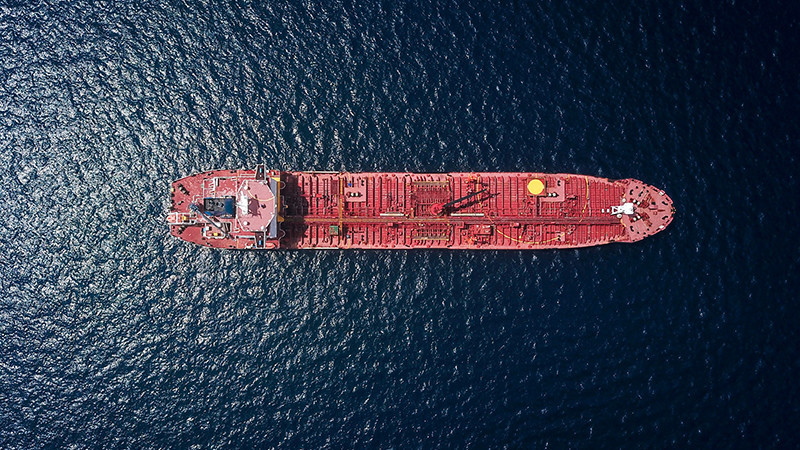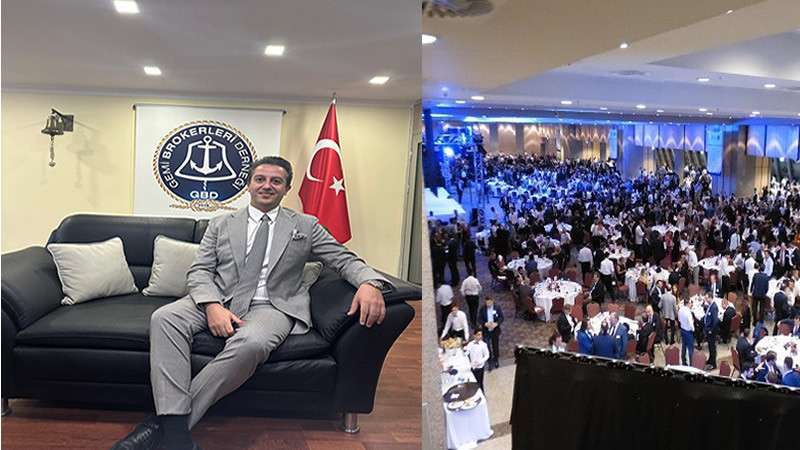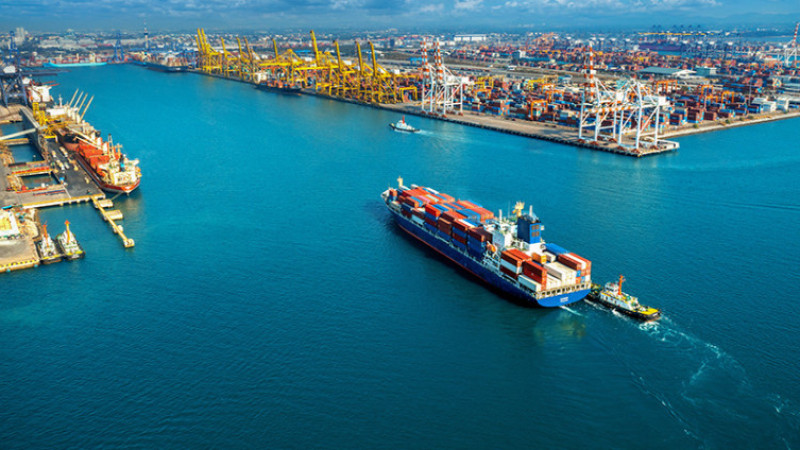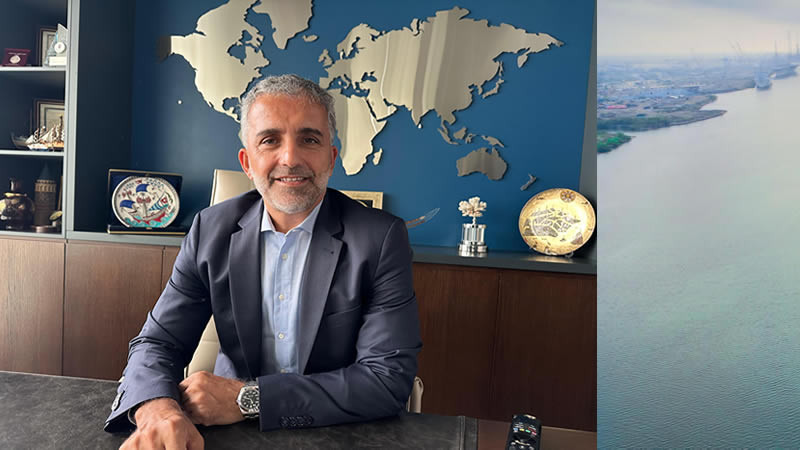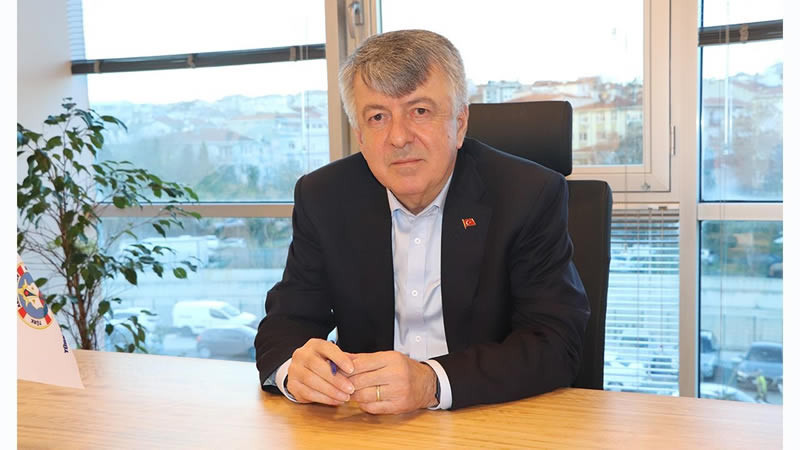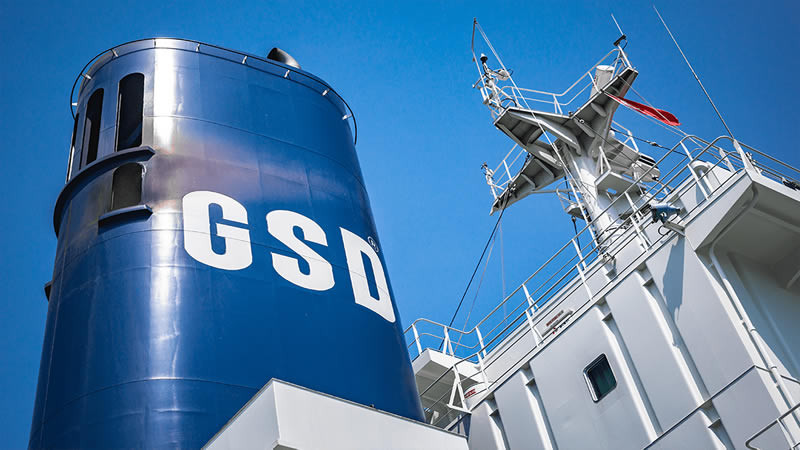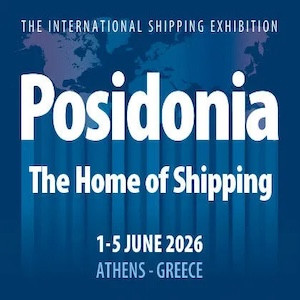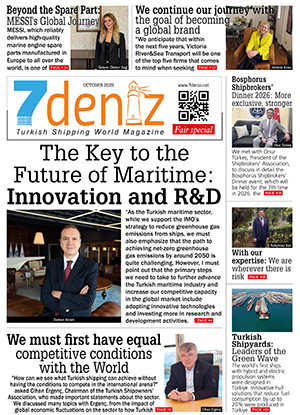We are not just a software company
With the increasing importance of energy efficiency and related regulations, the need for software that will facilitate the work of fleets in this field is also increasing...

With the increasing importance of energy efficiency and related regulations, the need for software that will facilitate the work of fleets in this field is also increasing. OddyShip, which operates in this field and also provides consultancy services, is making a name for itself with the software and consultancy solutions it offers to companies by closely monitoring the needs of the sector.
Captain Yusuf Özcan Demir, the owner of Oddyship Software and Consultancy company, is an insider in the sector. With his sectoral experience, he can provide solutions to the needs of the companies with the software they have developed, ensuring that the ships are compliant with the new rules, saving both fines and high taxes. In 2002, Captain Yusuf Özcan Demir graduated from Istanbul Technical University's Deck department and after working on major ships in the maritime market, he started to work on ship management systems and software in a company on land. Demir, who said that he met Shippernetix Ship Management System Software at that time, later established OddyShip Software, a Maritime and Consultancy company by acquiring the commercial rights of Shippernetix.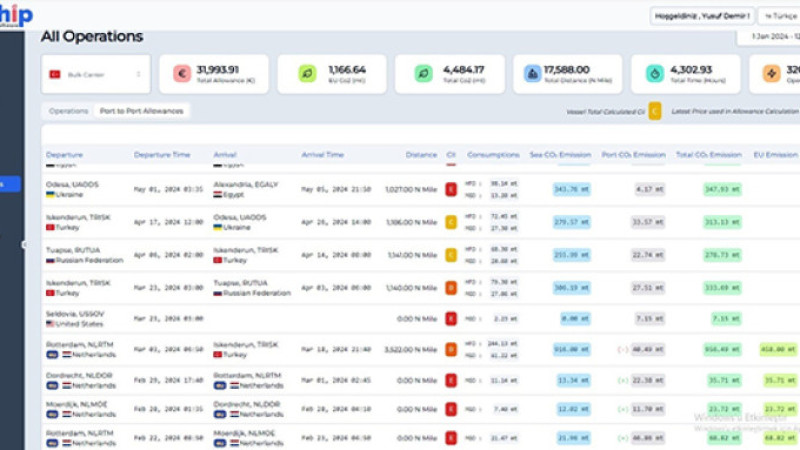
In service since 2010
Demir, who said that they have been serving the maritime sector in many areas since 2010, continued his words as follows: "I focused on software, thinking that software would become mandatory in the sector. However, the maritime market had its ups and downs. Along with the software topics we are working on, I also turned to different topics that I am interested in. At the top of them was the energy issue. Because I predicted that the maritime sector would be subjected to certain sanctions and practices regarding carbon and greenhouse gas emissions in terms of energy. In 2012, we started working on the energy issue in the maritime sector. We put the experience we gained there into the service of our sector along with the regulations."
Divide and Produce
Informing that they are working on Ship Management Software systems on a certain number of ships as of today, Demir said, "We provide consultancy services to many times this number of ships. As a person who has been in this sector for many years, I see that ship system software are very large component and their management is difficult, and that we cannot get the desired efficiency at every point because the capacity and staff of the shipowners vary. However, I have seen that both satisfaction and benefit are more when we provide services by dividing the software and focusing more on certain issues according to the needs of the customer. We have become a company that focuses on energy and provides services. On the other hand, we continue with all our ship management systems software." 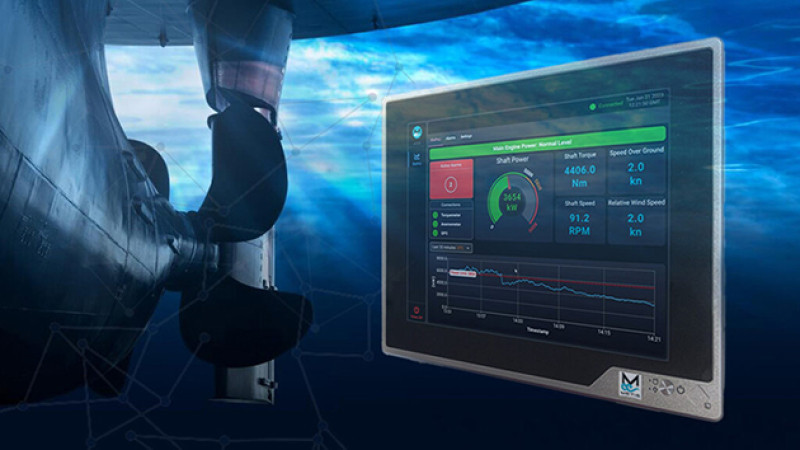
We made EEXI calculations for over 500 ships
Stating that they have made EEXI calculations for more than 500 ships based on IMO's and EU's regulations on energy, Demir said: "Subsequently, we made SEEMP PART III plans for nearly 350 ships in accordance with these regulations. As the first local company in Turkey, we have become capable of limiting the ship's machinery, which we call EPL. We have made EPL applications on nearly 100 ships. We have saved dozens of ships from EPL by performing CFD Analysis (computational fluid dynamics) on ships that do not have a pool test, or we have reduced the EPL rate and kept them tradeable. We recommend all ship owners who have problems with the EPL rate or SHAPOLI applications contact us on every platform. The EU has introduced a carbon tax system MRV-ETS. In this system, we have transformed into a structure that can collect data, calculate and report, and at the same time receive and transfer Carbon Allowances, which is the way the taxes are paid, on behalf of shipowners. There are much more important and difficult rules about the penalty called FuelEU Maritime. We recently held a meeting to inform the sector about it, and we are currently working mainly on it." 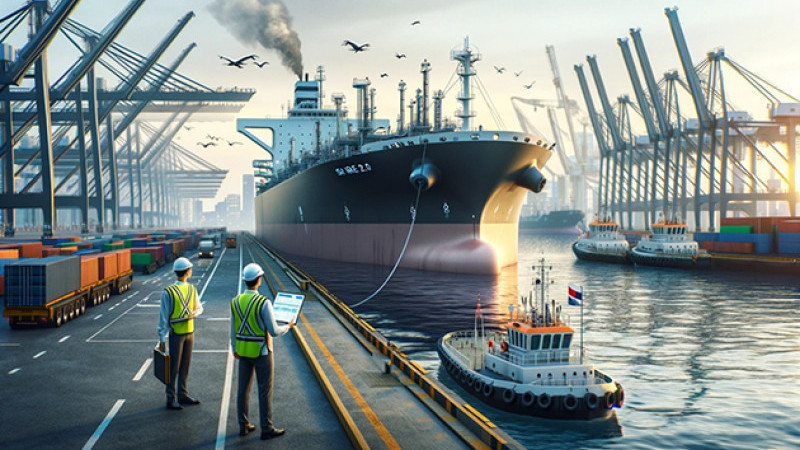
Intense participation in the meeting
Commenting on the event they organized recently, Demir said, "Energy efficiency is a topic that has recently emerged on the agenda of the maritime industry. I particularly emphasized this issue at the meeting we organized at a hotel in recent weeks. Our colleagues who have been working on ships for 30 years or our young graduates from our schools cannot get information about these issues either from their working life on board or from academic education. Because all these regulations are very new. The rules introduced by the EU, especially the tax and penalty systems, have been in our lives for about 1-2 years. Our sector is very curious about these. Since the shipowners and their representatives did not have an idea about what to do, our meeting was held with a higher participation than we expected.
It was very successful and productive. In such meetings, the focus is usually on issues such as rules and what the narrator companies do. As OddyShip, as in the previous meetings, we focused especially on what is done and how. We wanted our guests to return to their offices knowing how to prepare FuelEU plans and how to calculate penalties. We answered all the questions asked as much as possible, whereas in other events on the same topic sometime before us, many questions could not be answered. We made a presentation on what they should do. In 2012, when I saw a lot of dozing participants, including myself, at an energy efficiency panel I attended, I made a humorous post on social media saying "Wait, I will save you". Since then, we have done very useful work on many shipowners' ships. I consider this meeting to be one of them, as the participants are highly aware of the fact that they should not make mistakes because they are talking about very high amounts of money in terms of fines and taxes. We also received great attention at this meeting and received countless phone calls after the meeting."
There is a lack of knowledge of energy management in the sector
Demir said that in some sector presentations and company visits, they put a lot of effort into explaining that some of the things that are known to be true about energy management are actually wrong, and continued as follows: "Most of the information we correct stems from the information pollution caused by giving wrong information at various events. The main reason why I participate in webinars or meetings organized in the sector is because I try to explain that what is being told is wrong and the truth of the matter. Since this issue is little known in the sector, we wanted to create a platform where we can provide training to solve this lack of information while working on how the tax and penalty should be calculated and paid on the software side. We will not expand this, we will focus on energy and its sub-headings in the maritime sector. We have a plan to create an interactive platform where anyone can enter, watch, and ask questions to the experts. We have a plan to create a platform in the form of a portal where videos are published and questions are answered. We are even conducting negotiations with class companies in this field to confirm the accuracy of the information we provide.
We are also closely monitoring the Turkey-ETS system, which is regulated by law in Turkey. Our software module on Energy Management is also under evaluation in TEYDEP. The main purpose here is to share our existing experience with relevant institutions and authorities rather than grants."
These systems are still not mandatory
Stating that ship management system software is still not a mandatory requirement in the maritime sector, Demir said, "This software is seen as a tool to manage processes better and to do more efficient work. There are companies that use it only on tanker-type ships due to certain sanctions imposed by third-party companies, making it compulsory. Ship management systems are a topic that aims to improve and better monitor business processes. Our software in Türkiye is the first domestic software and has been a reference/inspiration for many software companies. At the point we have reached today, we provide services to the companies we work with to meet their needs. However, companies have a very rapidly changing personnel structure. The circulation is very high. For this reason, it is not easy to create certain policies, establish a certain work order, and thus make software more efficient. We prefer companies that have software experience, have sufficient staff, have crossed paths with this type of software before, and are willing to work. We start working with companies that do not meet these conditions after evaluating certain criteria. Because mutual satisfaction is an important factor for us. If we determine that this will not happen in our evaluation based on our experience, we clearly state that some processes need to be improved first, and then they should use software. Sometimes we even direct them to different software. We formulate our suggestion that you can choose our software after gaining experience in that other software for a certain period of time."
Benefit to the shipowner
Underlining that there are too many documents and too much data in the maritime sector, Demir said, "This data is stored in different places. Continuity in data is very important. There should be no interruption. Collecting and analyzing many data from different platforms in a single software, and making some decisions based on this analysis indirectly leads the shipowner to do business accurately and efficiently. This helps him to see more money that may come out of his pocket, possible fines to be paid, and various issues that may hinder his work. From this point of view, our MRV-DCS VOYAGE module takes a step forward by differentiating from other modules. Now, 2 brand new issues have been added to the operating expenses of our ships. Carbon tax and greenhouse gas emission penalties. MRV-DCS VOYAGE module enables us to collect the data from the ships in the correct format, to instantly access information such as how much carbon tax is incurred at the end of the voyage or month during the year and how much greenhouse gas penalty will be paid. Entering year-end reports into the MRVTHETIS system automatically generating DCS emission reports and sending them to the approvers are also done through this module. In addition, estimated tax-penalty calculations can be made for a voyage that has not yet taken place. In this way, we can avoid high tax and penalty payments due to incorrect calculations. When we look at the results of the data we collect in the software, its reporting, and analyses, we can measure how much penalty and tax the shipowner would have paid if this did not exist, and how much benefit it has provided. This is one of the features that I like the most. I have been in the sector for many years. The motto I have adopted for years is that we should make money for the people we serve, and we should open a space for them so that when we demand a fee, the other party will not feel uncomfortable with it and think that it is our right. Let's think that we provide these benefits before money. Even if the ship management systems software does not offer a direct monetary return, it prevents many problems that are likely to cause money to be lost."
Position in the industry
Evaluating their position in the sector, Demir said, "We started our business life with software for fleets with a high number of ships. However, over time, we separated our software and started to provide consultancy services in addition to software. Thus, we started to work with all Turkish shipowners, regardless of whether the number of ships was more or less. In IHM Inventory, we had the opportunity to work with many shipowners from the foreign market as well as in Turkey. We became the team that removed the most asbestos in Turkey. With our simultaneous BWTS D-2 Commissioning Test work, we have increased the number of companies/ships we serve much more. With these two important projects, we have also met with the coaster fleet. Especially when the limit for EEXI calculations and energy management was reduced to 400 GRT, we have become able to work with a much larger number of ships. We have provided consultancy to many shipowners on the establishment of MOHA accounts. In the coming period, we will continue to serve the same companies as a carbon allowance supplier.
Of course, we continue to invest in order to be beneficial to the sector with the income we earn while doing these jobs. We have started to add people who are experts in their fields to our team. We know that growth will not only be achieved by increasing the number of customers.
We have established a strong design team. Our design team is led by a friend of ours who has worked as a manager in Oslo for many years in a classification society and many shipyards. CFD calculations, ship conversions, stability revision calculations, MEG 4 - MBL calculations, BWTS design, etc. We continue to work on many subjects.
In order to improve the quality of the services we provide to tanker and chemical fleets, a colleague who is a doyen of the sector has recently joined us. In this way, we will continue to provide consultancy and software services to the sector on issues such as SIRE - CDI - TMSA both with his own experience and with the Inspection Software Module we have.
We want to expand our business abroad
Demir said that they also work with foreign companies and added, "All international shipowners are essentially subject to the regulations in the field in which we mainly serve Turkish shipowners. Regulations are the same for all countries. Our software serving in this field is being moved to cloud-based systems. We will move all our customers to this system. In this way, we will provide more comfortable service in the world markets. We already have a certain number of overseas customers. We want to expand our overseas customer network by explaining ourselves a little more. We are in negotiations with some large agencies and management companies that want to work with us in this regard."
We are not only a software company
Stating that OddyShip is not a company focused only on software and energy, Demir said, "Our way of working is to learn every new rule and application correctly and effectively. When we achieve this, we determine the work to be done with what we have learned and do it on behalf of the shipowner. Then, we develop software modules that will help the shipowner during the implementation. Then to continue to provide services in business follow-up and management. We are trying to do this for each new rule and application. We have Black Carbon and Cyber security issues ahead of us. We are continuing our preparatory work on both of these issues."


